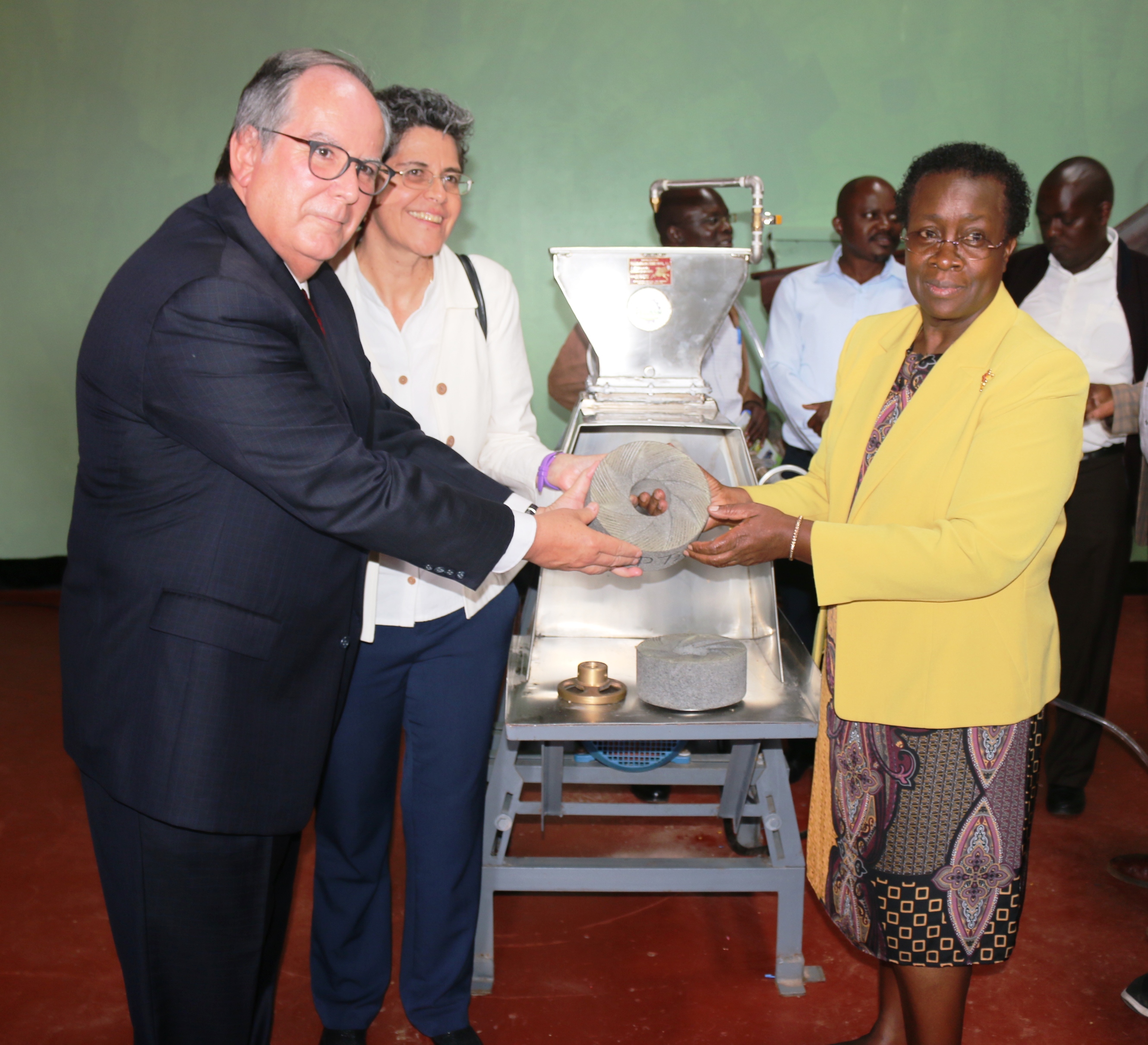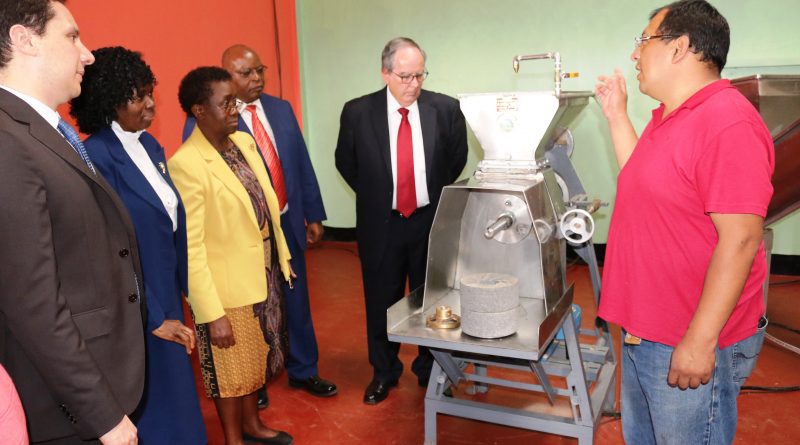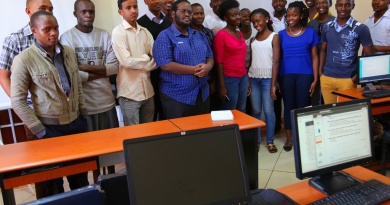Mexico Transfers Key Nixtamalization Technology to JKUAT
Food Security to Kenyans revolves around ugali, githeri and porridge as the main food consumed from maize in the country. However, this perception is bound to change following the introduction of nixtamalization machine by the Federal Government of Mexico through the Ministry of Agriculture to JKUAT in a bid to transfer nixtamalization technology to Kenya.
Nixtamalization is a process in Mexico and Central America whereby corn is treated with lime, cooked, dried and ground to produce flour used to make over 600 maize-based food products, the common one being tortillas.
Speaking during the official handover of the machine, the Mexican Ambassador to Kenya, Mr. Erasmo Martinez said the Government of Mexico considers the nixtamalization technology transfer as one of the paramount projects in the bilateral cooperation with Kenya.
“Nations strive and flourish when they interlink and share their expertise. For our case, nixtamalization technology is one of the expertise we would like to share with the Kenyan people,” opined Mr. Martinez.
The Ambassador informed the audience that Mexico has depended on maize for over 7,000 years and has over 600 different ways of using maize which is the pillar for the Mexican agricultural base. “With political will and availability of resources, the economic benefits of the technology are astronomical.”
The nixtamalization project aims at identifying technologies for maize utilisation used in Mexico that can be adopted in Kenya to increase diversification of maize based products to enhance the nutrition index and health status of the country.
Apart from the nutritional value brought by nixtamalization, Mr. Martinez observed that the technology will be vital in increasing the shelf life of maize based products hence ensuring the attainment of food security in the county.
The Vice Chancellor, Prof. Mabel Imbuga said JKUAT was privileged to be part of the nixtamalization technology transfer initiative from Mexico to Kenya.
“The technology transfer signals the beginning of broader collaborations forged around the fight against food insecurity and malnutrition in the country and will be vital in sharpening the competencies of JKUAT researchers, thus promoting the well-being of the farmers in the country,” elucidated Prof. Imbuga.
Prof. Imbuga also said JKUAT was strong in agriculture, mechanization and value addition technologies making the University better placed to be the Champion of nixtamalization technology transfer across the country and the region at large.
International Maize and Wheat Improvement Center (CIMMYT) Africa Regional Representative, Dr. Stephen Mugo said with close to 90% of Kenyans households growing maize, the technology will be crucial in reduction of postharvest losses, increase of income especially for smallholder farmers and the reduction of mycotoxins and aflatoxins in maize.
One of the experts from Mexico (right) explains how the machine works. Looking on (from left) is Embassy of Mexico in Kenya Rep., Eduardo Sanchez, DVC RPE, Prof. Mary Abukutsa, Prof. Imbuga, Dr. Mugo and Amb. Martinez
“Nixtamalization will enable our farmers to harness the technology for improved livelihood,” said Dr. Mugo.
Federal government of Mexico has provided three expert to install the machine and carry out a series of training on the nixtamalization technology. The participants of the training include JKUAT researchers, local maize millers and farmers.
The technology transfer is spearheaded by the Embassy of Mexico in Kenya, Ministry of Agriculture, Kenya Agriculture and Livestock Research Organisation (KALRO), JKUAT and International Maize and Wheat Improvement Center (CIMMYT).

By Stephen Wakhu




